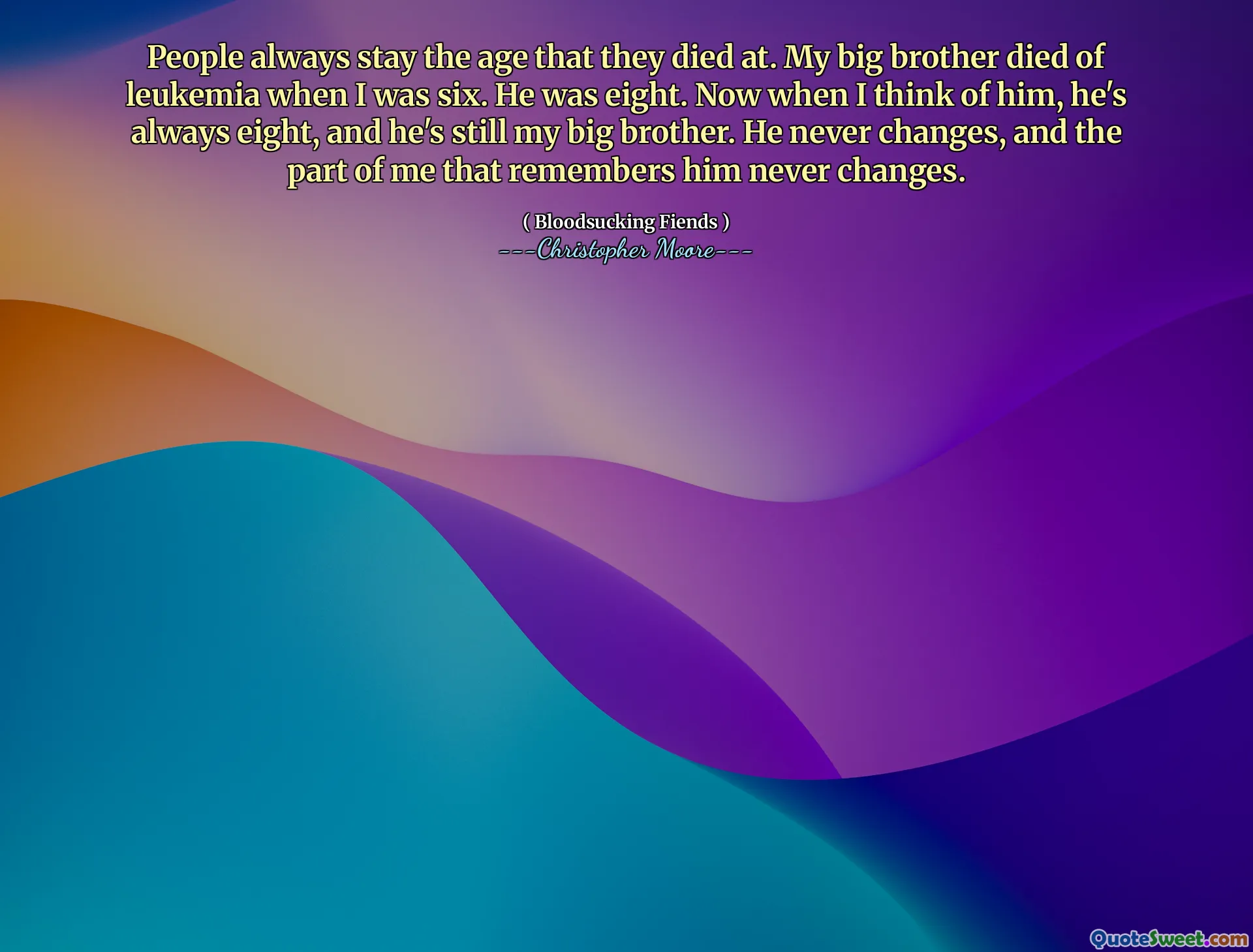
People always stay the age that they died at. My big brother died of leukemia when I was six. He was eight. Now when I think of him, he's always eight, and he's still my big brother. He never changes, and the part of me that remembers him never changes.
This quote beautifully encapsulates the enduring nature of memory and the way childhood experiences shape our perceptions of those we've lost. The idea that people remain forever the age at which they passed away reflects how memory freezes moments in time, preserving them untouched by the relentless flow of years. This can be both comforting and profoundly bittersweet. The author’s recollection of his brother trapped in that eternal youth is a testament to the human desire to hold on to people as they were, resisting the inevitability of change.
Moreover, this quote touches on a universal truth about grief and remembrance — the stately permanence of love and relationships, despite the impermanence of life itself. Even as time moves on and the living grow older and evolve, those memories and the emotional connections we have with departed loved ones remain intact within us, impenetrable by age or the passage of time.
It also speaks to identity and what endures beyond physical existence. The brother remains 'his big brother,' a role and a presence that transcends death. This portrayal effectively stresses how relationships and memories form the backbone of our identity, how they shape our sense of self across the years, often providing a lasting anchor that defines our past and how we relate to the world.
Such reflections from Christopher Moore's work invite the reader into a deeply personal yet widely resonant meditation on loss, memory, and the human condition — portraying grief not as an empty void but as a living, changing aspect of memory that retains a sense of permanence amidst loss.








